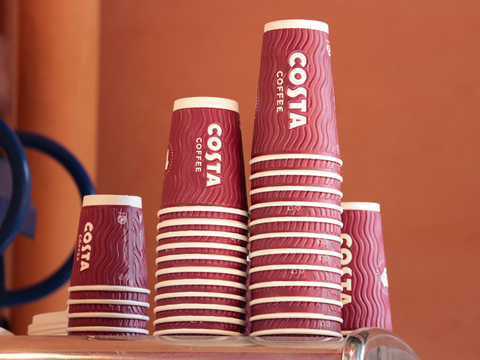
In the spirit of our #30WildPackagingWins campaign, which counts down the days until the Sustainable Packaging Summit, we shine a spotlight on five packaging innovations that have resonated most strongly with our readership in 2025.
One of this year’s stand-out innovations is the launch of an AI-based recycling trial for paper cups from McDonald’s, Greggs, Pret a Manger, Costa Coffee, and Caffè Nero.
Taking place in Cardiff, the trial requires consumers to download an app, which utilizes photographic detection from Bower to scan returns and distribute a 5p reward per cup.
During the recycling process, the paper cup and plastic lining are separated; the latter is set to be repurposed into garden furniture, cable ties, and other items, while the former will be sent to a paper mill in the Lake District to be recycled into paper packaging for brands like Mulberry, Selfridges, and Hallmark.
Data will also be collected from the trial, with Bower app users presented with surveys run by Valpak to collect demographic data, track app usage, and learn more about consumer engagement. Participating brands will be provided with information on how many of their cups are being recycled in their own and other brand stores.
At the same time, Keep Wales Tidy will distribute surveys to store staff and social media. It will run an awareness-raising campaign via in-store posters, point-of-sale show cards, and screens on the high street and train stations, as well as conduct bin composition analysis.
Meanwhile, Nissha Metallizing Solutions and Tetra Pak have developed an aseptic beverage carton with a paper-based barrier – a move said to boost the paper content in Tetra Pak’s cartons to approximately 80%.
According to Nissha, its paper-based portfolio is sourced from FSC-certified forests, among other controlled sources, and constitutes recyclable, renewable, and mono-material packaging solutions with coatings that protect against oxygen and light. It is designed to lessen reliance on non-renewable sources compared to the barrier layer used in traditional aseptic cartons.
Combining Nissha’s solutions with plant-based polymers, Tetra Pak claims to have increased the total renewable content of its cartons to 90% and lowered their carbon footprint by 33%.
Going forward, the paper-based barrier is anticipated to achieve downstream benefits – both for recycling infrastructures, as the cartons’ material structure has been simplified to just two main materials, and for paper mills, where cartons with a higher fibre yield may become more attractive.
In a related development, Tetra Pak is using Aneto’s vegetable broth product to trial a paper-based cap. Reportedly, the new pack contains 73% paper by weight and 87% renewable content (including the plant-based polymers in the coatings and opening neck).
Aneto was selected due to its previous transition into sugarcane-based polymers for its caps and coatings, alongside the year-round demand for its vegetable broth product. By testing paper caps, starting with an initial pilot batch of family packages in Spain, Tetra Pak intends to gain insight into their performance – namely their resistance to moisture, temperature, and stress – in real-world conditions.
Furthermore, Tetra Pak anticipates that applying a paper cap to the 80% paper-based cartons it developed alongside Nissha Metallizing Solutions would help reduce the pack’s carbon footprint even further, yet it aims to do so without compromising the carton’s ease of opening, resealability, or durability, with the trial set to gauge consumer reactions to the change.
Elsewhere, INEOS Styrolution has completed a project to mechanically recycle polystyrene into yoghurt cups via its ‘super clean’ purification process. Apparently, the process generates recyclates that are suitable for food contact, which was only thought possible for PET bottle recyclates in the past.
The technology aligns with EU 2022/1616 for recycled plastic materials and involves multiple steps, including deep NIR sorting, hot washing, flake sorting, melt filtration, and pelletizing.
It results in recycled material that claims to match the physical properties of conventional polystyrene while offering a ‘significantly lower’ carbon footprint than its traditional counterpart.
Having undergone an EFSA evaluation, ‘intensive’ quality controls, and ‘detailed’ analysis, the recycled cups were hoped to hit supermarket shelves at Lidl in early 2025.
Last but not least, Iceland Foods has reintroduced plastic trays to its beef and pork mince product lines, reversing a previous transition into airtight vacuum packaging.
The retailer previously sought to halve the pack’s plastic content and reduce its annual plastic consumption by 35 tonnes. At the same time, the pack was set to extend product shelf life by almost 50% and keep the products fresh for around two and a half weeks – all while fitting more packs into one delivery truck to reduce carbon emissions and ensure a consistent supply.
However, similar transitions from other retailers sparked consumer criticism. Sainsbury’s faced particular outrage, with shoppers complaining that the ‘awful’ new pack impacted the meat’s texture and appearance and was only recyclable via in-store recycling points.
Announcing its decision to reinstate the plastic tray on X, Iceland declared: “you asked, we delivered. The classic mince packaging is back!”
Several users supported the move, praising Iceland as “the only retailer that seems to listen to customers” as they described how the vacuum packaging “made the meat mush” – yet one user insisted they “didn’t ask” for the reversal, describing the redesigned pack as “better”.
If you want to be at the forefront of packaging sustainability, click here to join us at the Sustainable Packaging Summit 2025.
Taking place at Jaarbeurs Event & Exhibition Centre in Utrecht on the 10th – 12th November, this year’s event features over 700 delegates, 100+ speakers, and more than 55 exhibitors – offering visitors an extra day of content, more networking opportunities, and an exclusive block party in the exhibition hall.
The Summit mobilizes leaders of the FMCG value chain, policymakers, NGOs, recyclers and investors to collaborate, remove barriers and identify opportunities on the road to sustainable transformation.
To learn more or secure your place, visit the Sustainable Packaging Summit website.






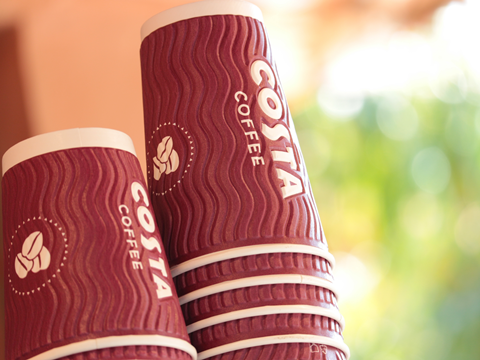
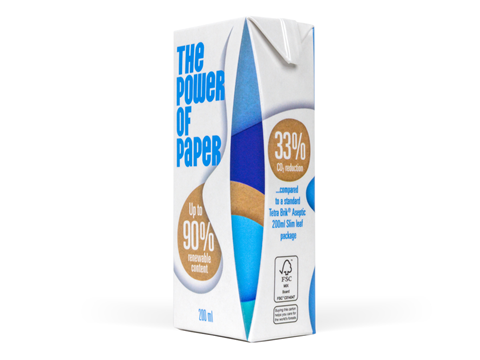
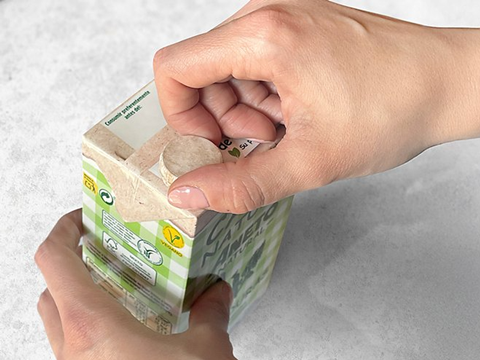
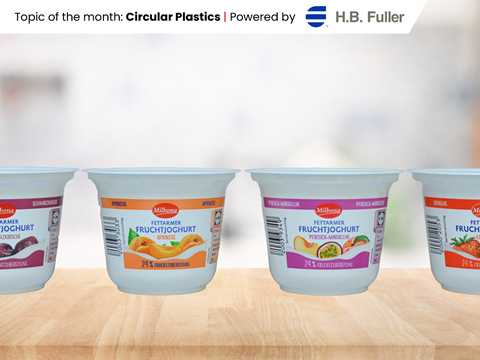
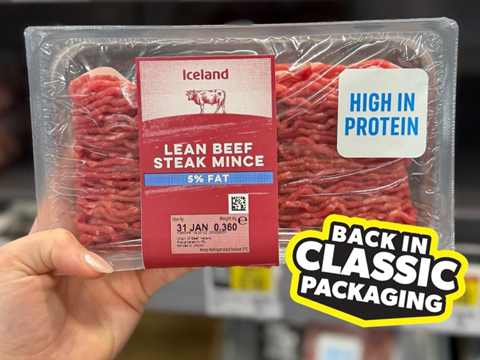








No comments yet